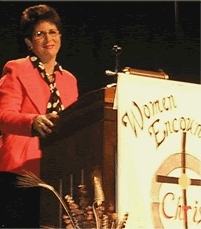
Image created by Jacqueline Chai. Click to check out her work!
Just to make sure everyone knows where my biases stand on the question as a consumer of foodstuffs, I’m allergic to soybeans. I actually cannot eat them because of the protein content. (See phenylketonuria.)
But the librarian in me, which is committed to the value of critical thinking in eliminating misinformation, was fascinated by this article from Macleans.ca about whether soy can cause negative effects in those – especially men – who consume it. These negative effects? Homosexuality, shrinking penises, low sperm-count, and general feminization.
Really? Those are negative effects? Well, that’s the first critical-thinking problem I’d like to nip in the bud.
If you think becoming more feminine is the scary bugaboo it’s being considered in this and other health scares, I’m going to have to burst your bubble right now. The world takes all kinds of people, and it’s dealing in stereotypes that produces heath-myths like this one. Men can be feminine without being gay, gay without being feminine, both or neither or something else entirely. Truth be told, what’s feminine is basically what the society around us says is feminine. If women are allowed to embrace behaviours our society calls masculine – hooray for feminism! – maybe it’s high time men were accepted even when they don’t shy away from our feminine stereotypes.
Web authors like Jim Rutz (from uber-conservative website World News Daily) talk about fears of soy-induced sexual confusion as if it isn’t a normal part of being alive and discovering oneself. Who hasn’t experienced that to some degree? But it’s exacerbated by the rigid expectations of our society, strict rules about what makes us male or female, masculine or feminine – rules that really don’t have any place in a society where it’s okay to be the best and most honest version of yourself.
Penis size? Nobody cares, and most women I know agree that bigger isn’t always better. If soybeans actually shrank penises, well, I know ladies who would be calling on their men to get a prescription! Low sperm count is a legitimate health concern for men who still hope to have kids one day, but we should leave behind the idea that reproductive problems make you less of a man (or woman, for that matter.) And I can understand not wanting to be gay because of the stigma in our society against it, but honestly, the problem there is STIGMA, not soybeans.
Bottom line? If there are health concerns around soy, we should approach them as health concerns. Let’s filter out all these myths about what makes someone masculine or feminine, the ones that make any soybean scare seem threatening, not just to your body, but to who you are at the core. Nothing you ever eat will change who you are. So let’s all relax.
Now, on to the health bit. The scientific consensus indicates that soy can be beneficial. It’s a health food, for heaven’s sake! (Check out the Soy Fears page on Bryanna’s Vegan Feast for a comprehensive collection of soy facts and myths.) The problem is that, in our Internet society, bad news about soy travels way faster than the efforts people make to correct the myths created by bad scientific studies that play into our least scientific social fears.
How come? Well, bad news always travels more quickly; if you’ve got a soy-loving brother, you’re more likely to be galvanized to send him an article about how soy causes infertility than to send him an article that says how soy prevents cancer. Even more, though, soy is a health food and the pressure to live healthy is enormous. If you’re no great fan of soy products, any news that gives you a “get-out-of-soy-free” card is going to really appeal to you. It’s a lot easier to say, “Of course I’m concerned about my health – who isn’t? – but soy has such negative health effects.” It doesn’t look quite so good to say, “I’m concerned about my health, but to be honest, I just really wanted that Big Mac with fries, and supersize it!”
Just think about the irony; Richard Béliveau did. “We eat junk food,” he observes; “we’re facing the biggest obesity problem in the history of mankind, and we question that soy could lead to a health problem.” Weighing soy against some of the fast-food junk we eat, how can we possibly think that the junk food comes out on top?
Well, if junk food just makes us fat, but soy makes us gay, that’s how. We live in a culture that’s so uptight about sexuality. Fortunately, most of the scary stories about soy aren’t scientifically supported. But unfortunately, they pack an emotional punch that makes critical thinking tricky.
And until we get a grip on our fears about sexuality, that’s going to be a problem.



